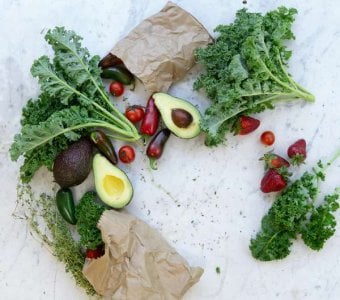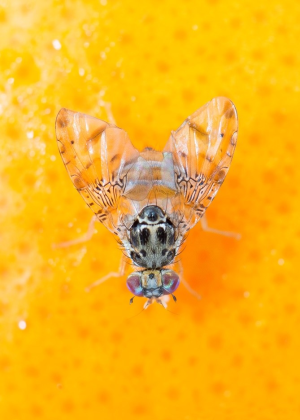Several suburbs to undergo quarantine over one severe threat
By
Danielle F.
- Replies 28
Australia is home to some of nature's marvels—both flora and fauna.
However, a recent development cast a shadow over the country's horticultural haven.
This severe threat prompted authorities in one state to take action.
The Department of Primary Industries and Regional Development (DPIRD) has declared a 'red zone' quarantine area, encompassing multiple suburbs around Perth's southern regions.
The suburbs within the red zone include Bicton, Hilton, East Fremantle, Booragoon, Bull Creek, Coolbellup, Melville, Myaree, North Lake, Kardinya, Samson, Winthrop, Murdoch, Bateman, O'Connor, and Attadale.
The root cause? The Queensland fruit fly—a notorious pest known for its destructive impact on a wide array of fruits and vegetables.

The pest, also called the Qfly, has been detected in Willagee and Palmyra.
The Qfly is more than a nuisance; it is a serious threat to Western Australia's horticulture industries, as it could wreak havoc on more than 300 types of fruit and vegetables.
DPIRD's Chief Plant Biosecurity Officer, Dr Vincent Lanoiselet, urged residents in the mentioned suburbs to dispose of all fruit and fruiting vegetables from their gardens immediately.
This includes both ripe and unripe produce, as well as any fallen fruit.
While ripe fruit may be consumed, Dr Lanoiselet advised that homegrown produce must undergo treatment first.
Treatment methods include cooking, freezing, or solarising—putting fruit in a black plastic bag and placing it on a hard surface in direct sunlight for over seven days.
Only treated fruit may be moved within or outside of the red zone, while untreated fruit should be disposed of in the general waste bin and securely bagged to prevent the spread of the Qfly.
The quarantine area also added an 'orange zone', covering suburbs within a 15-kilometre radius of the red zone.
Movement of fruit and vegetables within the orange zone into the red zone is allowed as long as anyone moving the goods follows the department's requirements.
The Qfly has been spotted in the Northern Territory, Queensland, New South Wales, and Victoria.
Its arrival in Western Australia (WA) became a cause for significant concern.
Keeping the Qfly out of WA would be a crucial part of the state's horticultural exports, including avocados to Japan and strawberries to Thailand.
DPIRD's surveillance program detected the Qfly, which included over 2,000 fruit fly traps in the metropolitan area.
The pest has been eradicated from Perth about nine times since 1989, with the most recent efforts in Bayswater and Belmont in 2023.
Horticulturalist Sabrina Hahn reassured locals that there's no need to remove plants or flowers, only the fruit.
The government's eradication campaigns had a resounding success, as it saved the state's horticulture industry and economy an estimated $38 million annually in lost production and market access.

What steps have you taken to combat the Qfly threat? How do you keep your homegrown fruit and produce safe for consumption? Share your experiences and tips with us in the comments below.
However, a recent development cast a shadow over the country's horticultural haven.
This severe threat prompted authorities in one state to take action.
The Department of Primary Industries and Regional Development (DPIRD) has declared a 'red zone' quarantine area, encompassing multiple suburbs around Perth's southern regions.
The suburbs within the red zone include Bicton, Hilton, East Fremantle, Booragoon, Bull Creek, Coolbellup, Melville, Myaree, North Lake, Kardinya, Samson, Winthrop, Murdoch, Bateman, O'Connor, and Attadale.
The root cause? The Queensland fruit fly—a notorious pest known for its destructive impact on a wide array of fruits and vegetables.

Homegrown fruit and vegetables may get destroyed by the Queensland fruit fly. Image Credit: Pexels/Elle Hughes
The pest, also called the Qfly, has been detected in Willagee and Palmyra.
The Qfly is more than a nuisance; it is a serious threat to Western Australia's horticulture industries, as it could wreak havoc on more than 300 types of fruit and vegetables.
DPIRD's Chief Plant Biosecurity Officer, Dr Vincent Lanoiselet, urged residents in the mentioned suburbs to dispose of all fruit and fruiting vegetables from their gardens immediately.
This includes both ripe and unripe produce, as well as any fallen fruit.
While ripe fruit may be consumed, Dr Lanoiselet advised that homegrown produce must undergo treatment first.
Treatment methods include cooking, freezing, or solarising—putting fruit in a black plastic bag and placing it on a hard surface in direct sunlight for over seven days.
Only treated fruit may be moved within or outside of the red zone, while untreated fruit should be disposed of in the general waste bin and securely bagged to prevent the spread of the Qfly.
The quarantine area also added an 'orange zone', covering suburbs within a 15-kilometre radius of the red zone.
Movement of fruit and vegetables within the orange zone into the red zone is allowed as long as anyone moving the goods follows the department's requirements.
The Qfly has been spotted in the Northern Territory, Queensland, New South Wales, and Victoria.
Its arrival in Western Australia (WA) became a cause for significant concern.
Keeping the Qfly out of WA would be a crucial part of the state's horticultural exports, including avocados to Japan and strawberries to Thailand.
DPIRD's surveillance program detected the Qfly, which included over 2,000 fruit fly traps in the metropolitan area.
The pest has been eradicated from Perth about nine times since 1989, with the most recent efforts in Bayswater and Belmont in 2023.
Horticulturalist Sabrina Hahn reassured locals that there's no need to remove plants or flowers, only the fruit.
The government's eradication campaigns had a resounding success, as it saved the state's horticulture industry and economy an estimated $38 million annually in lost production and market access.
Key Takeaways
- The Queensland fruit fly (Qfly) has been detected in Willagee and Palmyra in Perth's south.
- A red zone quarantine has been established by the local government, with residents urged to remove or treat all fruit and vegetables from their gardens.
- The spread of the Qfly could have severe impacts on Western Australia's horticultural industries.
- The Department of Primary Industries and Regional Development (DPIRD) has already taken steps to manage the situation, including trapping and public education on containment measures.








